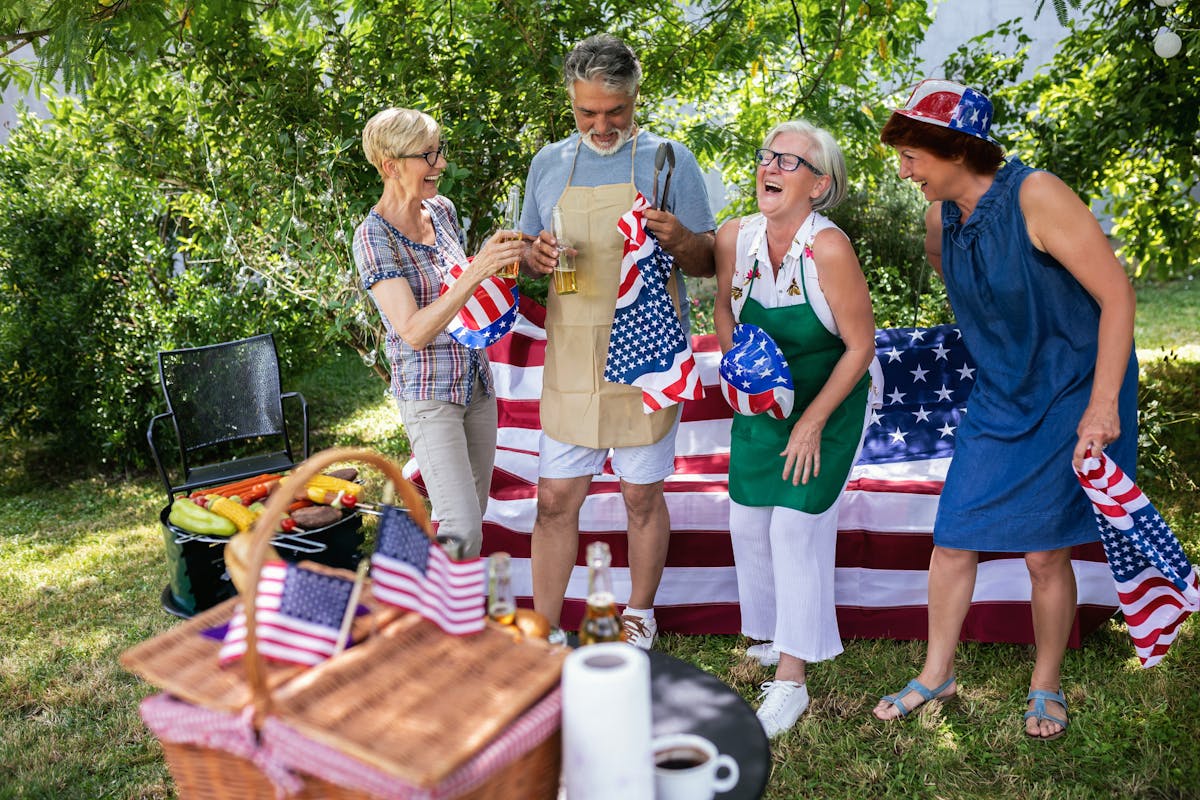Hosting a Dementia-Friendly Independence Day Celebration

When a member of your household has Alzheimer’s disease or another form of dementia, hosting holiday parties may be more of a challenge than in past years. Some families stop inviting even small groups of people to their home entirely—mostly out of fear of triggering an episode of wandering or of increasing the senior’s anxiety and agitation.
While the need to limit gatherings is understandable, skipping favorite seasonal festivities can leave you all feeling isolated and lonely. And that’s an issue families already struggle with when a loved one has memory loss. As our nation prepares to celebrate Independence Day, we have a few tips that might help you feel more confident about welcoming friends to your home.
Celebrating the Fourth of July When a Loved One Has Dementia
- Schedule an early afternoon party
Though a little unconventional, hosting your Independence Day gathering around lunchtime might be a good idea. Adults with a memory impairment often do better earlier in the afternoon than in the evening. This is especially true of the older adult who is prone to experiencing sundowner’s syndrome or wandering.
Planning for early afternoon also helps ensure that you can end the party before noisy fireworks begin in the neighborhood. The loud, random noises associated with most types of fireworks can be frightening for an adult with dementia. It can increase agitation and possibly even lead the senior to try to wander from home in search of a place where they feel safer.
- Limit the size of the gathering
Another tip that may allow everyone to relax and enjoy the festivities more is to keep it small in size. It may also be helpful to invite people the senior knows. While dementia often robs people of the ability to remember names, many continue to recognize faces until the later stages of the disease.
You can encourage guests who know your family member well to spend some one-on-one time with them. Invite each person to sit down and have a quiet conversation with the senior. If, however, your guests aren’t familiar with the disease, you might need to explain that they will likely need to hold up both ends of the conversation. And they’ll need to be patient if the adult with memory loss tries to participate in the discussion and struggles to find the right words.
- Be sure finger foods and lots of water are on the menu
People with dementia are at increased risk for dehydration, often because they just don’t remember to drink water when they are thirsty. Make sure to keep bottles or pitchers of water in prominent places. Consider asking a guest who is familiar with your loved one to keep an eye out to make sure they are drinking enough water.
Also, don’t forget to include foods that are easy for an adult with dementia to eat. Because manipulating utensils often becomes more difficult as the disease progresses, finger foods are usually best. Think about the meals your family member is most able to eat independently and make sure those are on the menu.
Invest in a Mobile Monitoring Device
Whether it’s to keep a senior with dementia safe during a family party or on an everyday basis, investing in a mobile monitoring unit is probably a good idea. These discreet devices make it easy for the user to call for help in the event of an emergency. Call 1-844-203-5617 today to learn more!